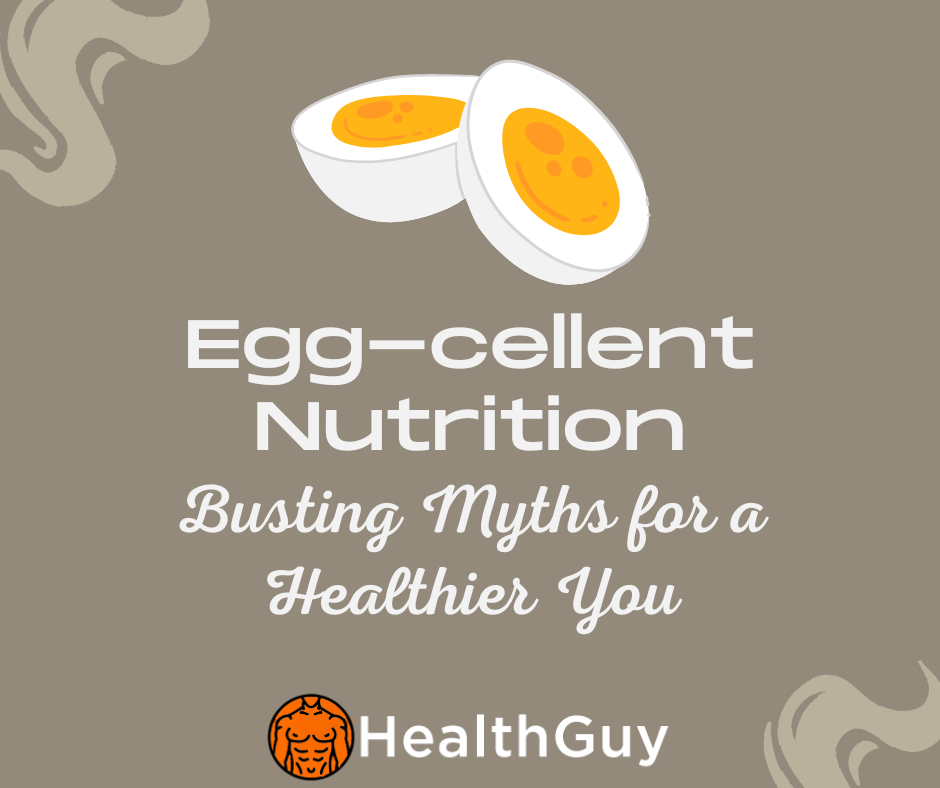
Egg-cellent Nutrition: Busting Myths for a Healthier You
Eggs have been a staple in human diets for centuries, revered for their versatility, taste, and nutritional value. However, misconceptions about eggs have led to doubts about their health benefits. One common myth is that the yolk, with its rich hue, is laden with unhealthy fats. In this article, we will debunk this myth and explore the true nutritional value of eggs, their calorie content, and the optimal time to include them in your diet.
The Nutritional Breakdown
Eggs are a nutritional powerhouse, providing an array of essential nutrients necessary for overall health. A large egg contains approximately 72 calories, making it a relatively low-calorie option. Let’s break down the key components of an egg:
- Protein: Eggs are an excellent source of high-quality protein, containing all the essential amino acids your body needs. The protein in eggs supports muscle growth, repairs tissues, and aids in the production of enzymes and hormones.
- Fats: While the egg yolk does contain fats, it’s important to note that not all fats are created equal. The majority of the fat in eggs is healthy unsaturated fat. The yolk also contains essential fat-soluble vitamins like vitamin D, which plays a crucial role in bone health, and choline, which is essential for brain function.
- Vitamins and Minerals: Eggs are rich in vitamins such as B12, which is important for nerve function, and selenium, an antioxidant that supports the immune system. They also provide minerals like iron, zinc, and phosphorus.
- Cholesterol: Eggs do contain dietary cholesterol, but research has shown that dietary cholesterol has a relatively small impact on blood cholesterol levels for most people. The cholesterol in eggs is not a major concern for the majority of individuals, and the overall health benefits of eggs far outweigh any potential negative effects.
- Carbohydrates: Eggs are extremely low in carbohydrates, which can make them a suitable choice for those looking to manage their carbohydrate intake.
Busting the Myth: Yolk and Fats
The idea that egg yolks are laden with unhealthy fats is not entirely accurate. The fats found in egg yolks are primarily monounsaturated and polyunsaturated fats, which have been linked to heart health and reduced inflammation. These healthy fats can actually contribute to a balanced diet and provide energy for various bodily functions.
Research has indicated that the link between dietary cholesterol and heart disease is more complex than previously thought. For most individuals, consuming moderate amounts of eggs, including the yolks, can be part of a heart-healthy diet.
Eggs and Caloric Content
As mentioned earlier, a large egg contains about 72 calories. This makes eggs a calorie-friendly option for those aiming to manage their weight. Additionally, the protein and healthy fats in eggs can contribute to feelings of fullness, which may help control appetite and prevent overeating.
When to Enjoy Eggs
Eggs are incredibly versatile and can be enjoyed at any time of the day. The timing of egg consumption can depend on personal preferences and dietary goals. Here are some suggestions:
- Breakfast: Eggs can be a fantastic addition to your breakfast. They provide a steady source of energy, keeping you fuller for longer and preventing mid-morning snacking. Try scrambled eggs with vegetables or a vegetable omelette for a nutritious start to your day.
- Snacks: Hard-boiled eggs make for a convenient and satisfying snack. The protein content can help maintain energy levels throughout the day.
- Lunch or Dinner: Eggs can be included in salads, sandwiches, or as a side dish. Incorporating eggs into your main meals can add nutritional value and enhance the taste of your dishes.
Conclusion
In conclusion, eggs are a nutritional powerhouse that offers a range of health benefits. The myth surrounding egg yolks and their fat content has been debunked, highlighting the importance of consuming whole eggs to reap their full nutritional value. With their high-quality protein, healthy fats, vitamins, and minerals, eggs can be enjoyed as part of a balanced diet at any time of day. Remember, moderation is key, and consulting with a healthcare professional or registered dietitian can provide personalized guidance based on your individual health goals.
